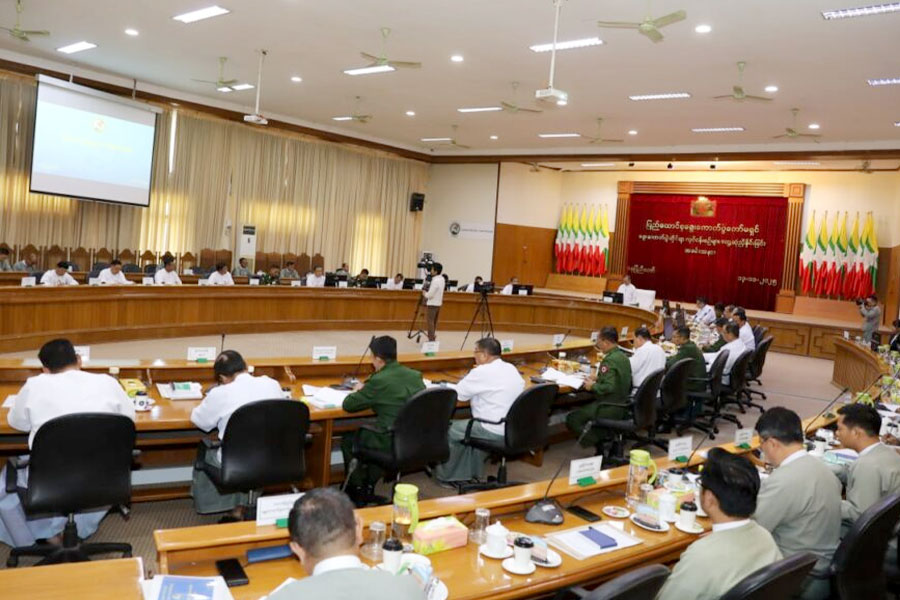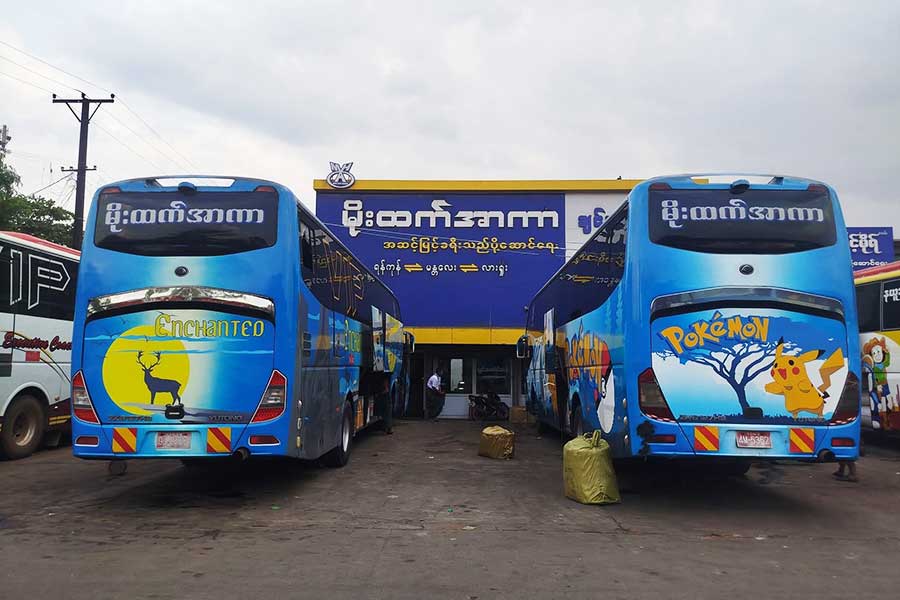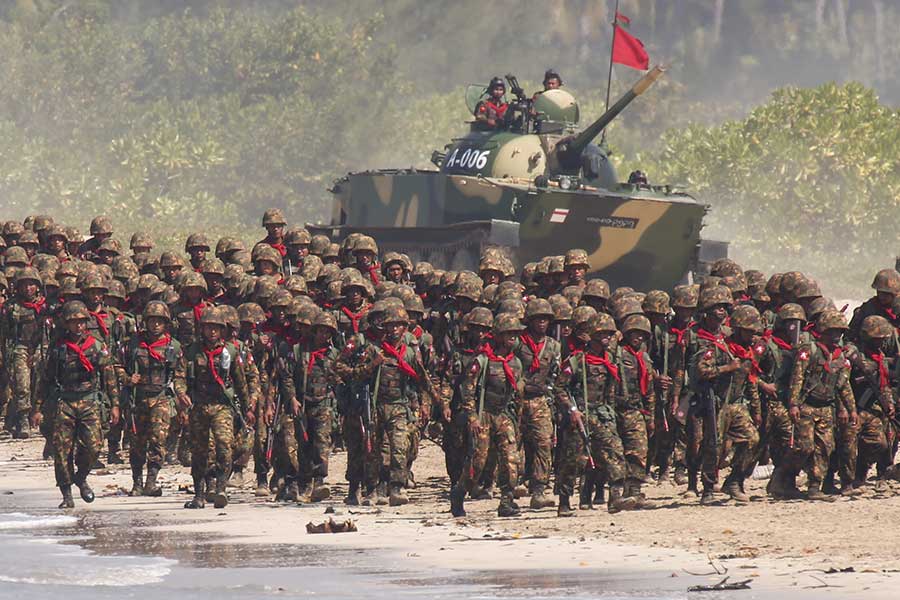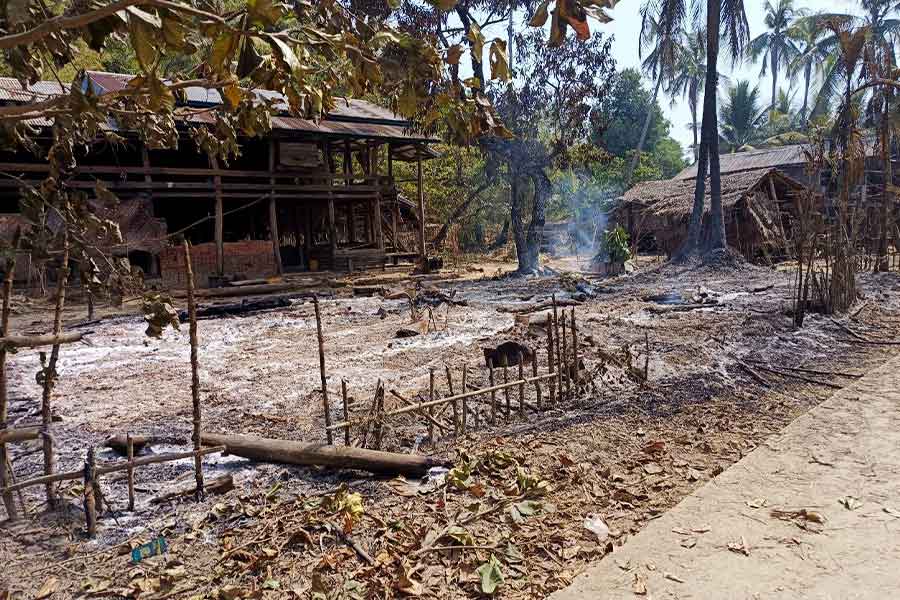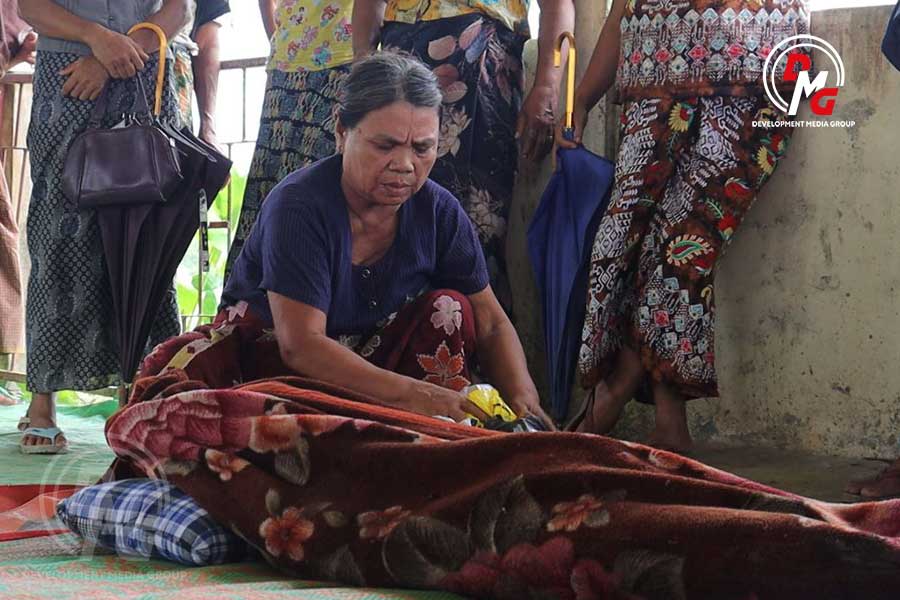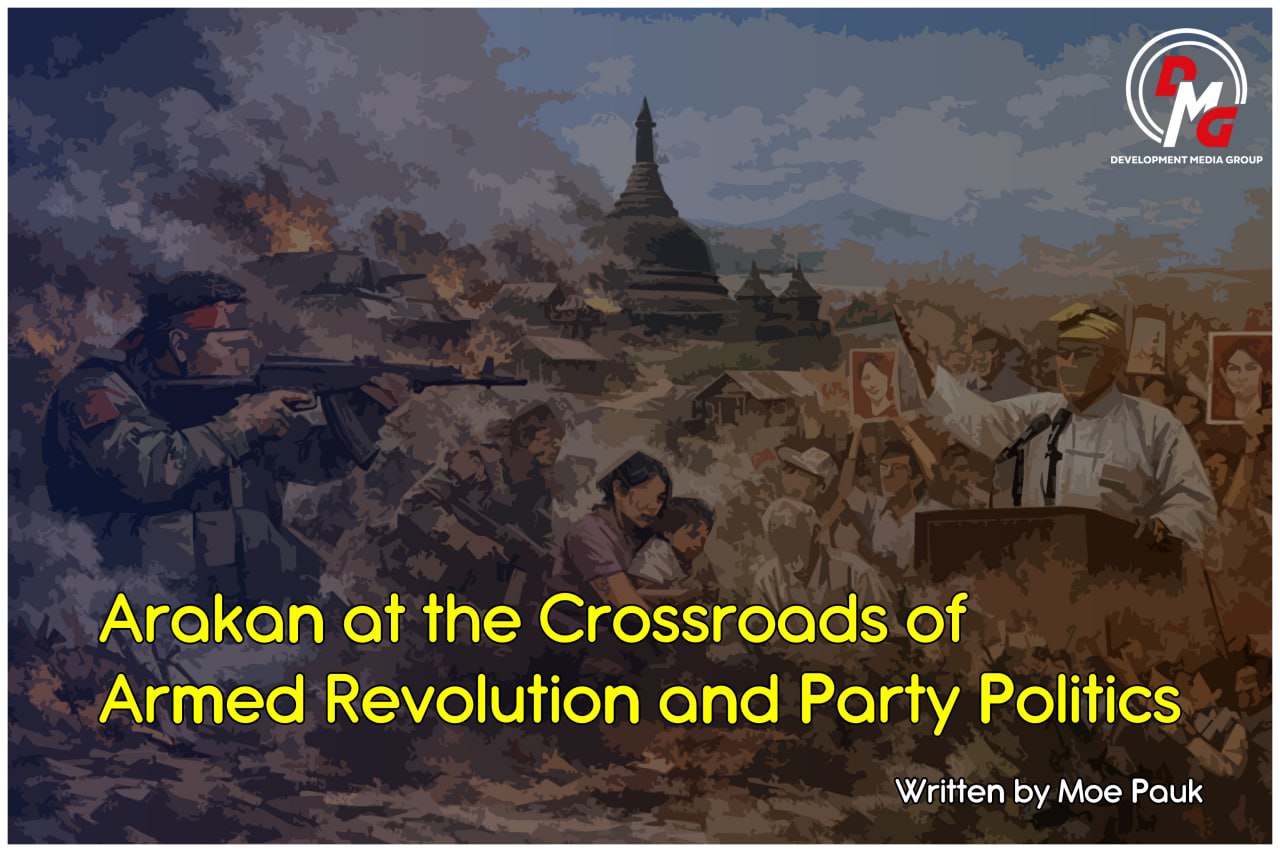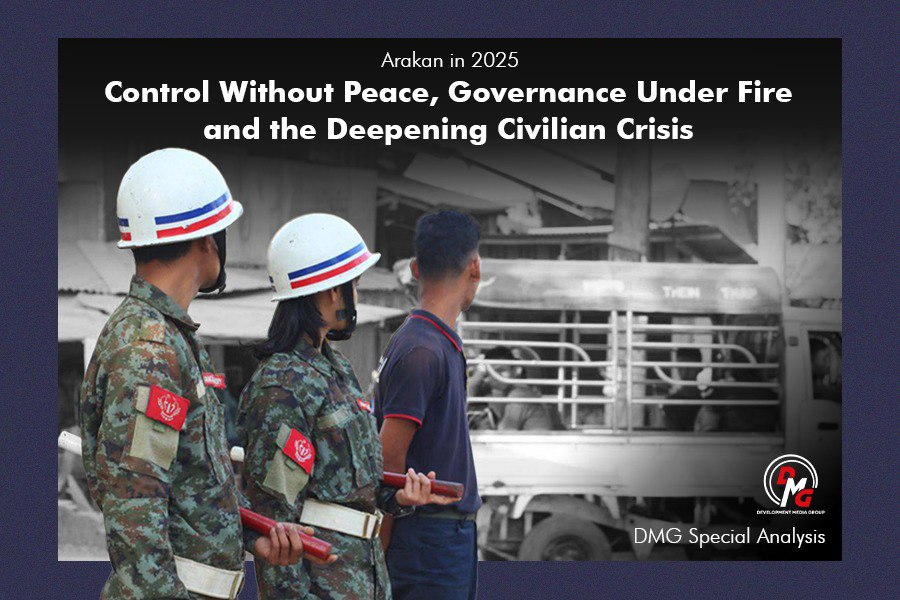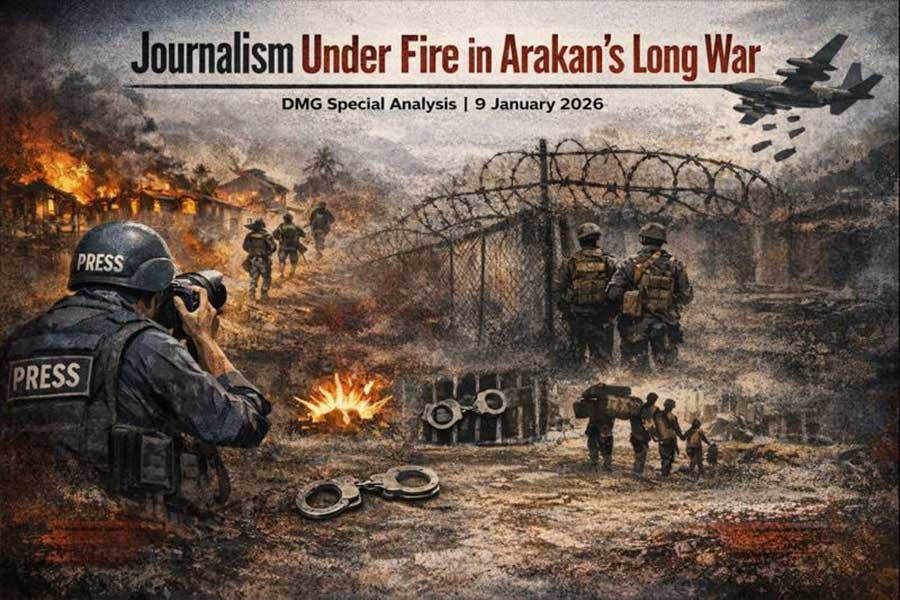- UEC announces 1,025 MPs elected in 2025 general elections
- Junta tightens travel restrictions on Arakanese people in mainland Myanmar
- Regime steps up offensive toward Arakan State via Ayeyarwady coastal route
- Elderly IDP killed, two others injured in junta airstrike on Kyaukphyu village
- AAPP urges urgent international action as junta crimes against humanity escalate
Mrauk-U’s UNESCO World Heritage Bid Has a Drug Problem
A final proposal seeking to designate Mrauk-U as a UNESCO World Heritage Site was submitted to the World Heritage Committee in Paris on December 30, according to the Department of Archeology and National Museum. The building of squatter homes and other alterations to the landscape, however, are among the activities that may be jeopardising the UNESCO heritage bid, conservationists say.
03 Mar 2022
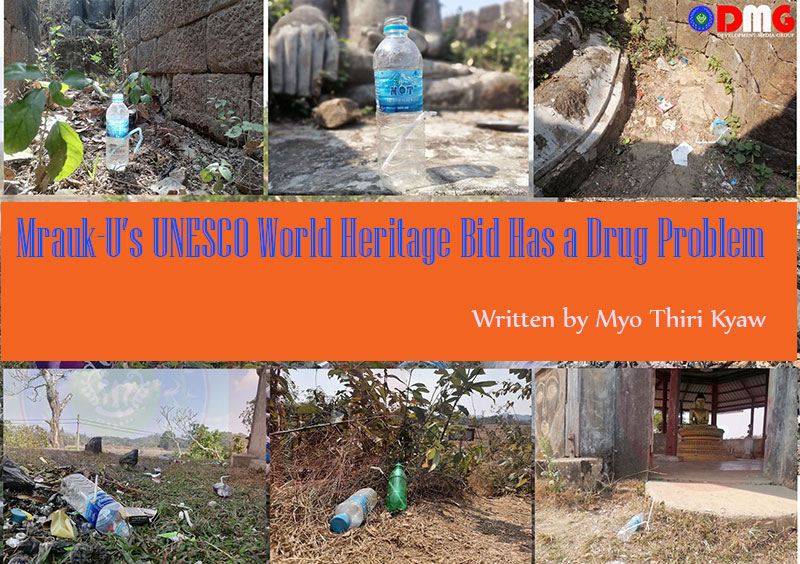
Written by Myo Thiri Kyaw
The ancient city of Mrauk-U, which is highly valued by the Arakanese people, is currently a candidate for inscription on the UNESCO World Heritage List.
Heavy artillery shelling in the Mrauk-U area by the Myanmar military damaged ancient pagodas, burned homes to the ground, and injured and killed some civilians during fighting between the Tatmadaw and Arakan Army (AA) from 2018 to 2020. Prior to the outbreak of the conflict in late 2018, Mrauk-U bustled with local and foreign tourists drawn to this beautiful city with a centuries-old heritage. But from the start of the fighting until the end of 2020, security concerns were a barrier to travel to Mrauk-U. The military coup in early 2021 has kept most foreign tourists away, but domestic travellers are slowly returning to Mrauk-U. The ancient city is once again showing signs of its potential as a tourism destination.
A final proposal seeking to designate Mrauk-U as a UNESCO World Heritage Site was submitted to the World Heritage Committee in Paris on December 30, according to the Department of Archeology and National Museum. The building of squatter homes and other alterations to the landscape, however, are among the activities that may be jeopardising the UNESCO heritage bid, conservationists say.
Less obvious from an aesthetic standpoint, the use of stimulant tablets in the vicinity of Mrauk-U’s ancient pagodas and temples is arguably even more detrimental to the dignity of the Arakanese people. Drug use is on the rise in many Arakan State townships, with the majority of the “using” population in their teens and 20s. Without looking too hard, drug use can be seen — in-person as well as on social media — in the vicinity of Mrauk-U’s ancient pagodas and temples.
Ko Tun Tun (not his real name) said he buys at least 30 stimulant tablets at a time, usually with friends. “If you go to buy stimulant tablets, we have to signal whether you can enter the drug dealer’s house. You just have to nod your head. If they are OK, we will nod our head again,” he said.
In the past, there have been reports of large numbers of stimulant pills being seized at the Ann Township security checkpoint, a gateway for bringing the pills into Arakan State, but no arrests have been reported since the Myanmar military seized power on February 1, 2021.
There are three main types of WY-branded stimulant pills — pink, orange, and red — and the current price of a pill is between K1,000 and K1,500, according to drug users. For minors, drug use is said to be motivated by a mixture of experimentation’s appeal and a desire to assert independence at a time when they are ostensibly under parental control. The addictive nature of stimulant tablets means that what may have started out as youthful indiscretion can turn into a lifestyle habit well into adulthood, with consequences that are typically problematic and sometimes fatal.
Many drug users say that after taking stimulant pills, it is easier to talk to people, to be physically active, to concentrate, and to avoid tiredness or fatigue when working. However, abuse of stimulant tablets can be harmful and even life-threatening to individuals, as well as detrimental to society.
“If young people in our town continue to use stimulant pills like this, Mrauk-U will be disgusting, no matter how expensive it becomes. Mrauk-U has become a drug capital and its inhabitants are very ashamed,” said Ko Shine Bu Chay, a former drug addict.
The discovery of stimulant pills within the walls of the ancient city has been a source of unhappiness for pilgrims, said a resident of Mrauk-U.
“Pilgrims were embarrassed when they saw drugs being found in Mrauk-U. We also regret that Mrauk-U is a place where drugs are used by drug addicts. I think the widespread use of such drugs in Mrauk-U is due to poor parental control and easy access to drugs,” she added.
UNESCO experts are expected to make a field trip to Mrauk-U later this year. No one knows what impact evidence of drug use in the vicinity of the ancient city might have on its World Heritage bid, but certainly neutral observers would agree, at the very least, that it would not help the case for inscription.
There has been a bifurcation of the administration of Arakan State, particularly since the Myanmar military’s February 2021 coup, between the Arakan Army and military regime. Taking advantage of this, drug users and traffickers are able to sell more drugs in a legal grey area, said U Tun Thar Sein, a former Arakan State legislator for Mrauk-U Township.
“There are no job opportunities for local people. Many young people are distracted and addicted to drugs as a result of the closure of schools due to the Covid-19 pandemic,” the ex-lawmaker added.
Civil society organisations in Arakan State say the military council and the Arakan Army have a joint responsibility to crack down on drug use and take effective action against drug smugglers and dealers in Mrauk-U.
Ko Aung Khaing Soe of the Mrauk-U Youth Association said the Arakan Army had arrested and punished drug users in Mrauk-U before the military takeover, but was not known to have made any such arrests in the post-coup period.
“Authorities also need to be more effective in cracking down on drug dealers,” he added. “Dealers must be prosecuted rather than drug users. We should take action in accordance with the law, without being biassed. Drug traffickers need to be prosecuted, not released after being arrested. Only then, I think, will this drug use gradually disappear.”
The Arakan New Generation Network conducted anti-drug campaigns in Arakan State in 2016-17, but at present, those efforts and anything subsequent appear not to have borne appreciable fruit. Efforts to win Mrauk-U the UNESCO recognition it deserves as a rich archeological, historical and cultural site could be severely affected by the drug problem.
As the “World Heritage” status implies, securing this designation would guarantee greater global exposure for Mrauk-U, which had been gaining ground as a pilgrimage site and tourist destination when the twin challenges of pandemic and conflict put a severe dent in arrivals over recent years.
Mrauk-U has a drug problem, among other challenges, and only collective efforts to address the scourge are likely to yield positive results.




